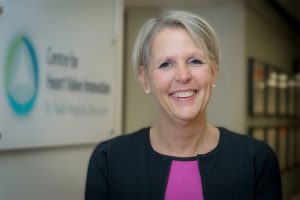CHÉOS Scientist Dr. Sandra Lauck has received a Convening and Collaborating award from the Michael Smith Foundation for Health Research. Dr. Lauck and her team will look at existing knowledge about the treatment of aortic stenosis and shared decision-making, and study how this information can be used to improve the care of older British Columbians and Canadians who need valve surgery.
Health care decisions are often fraught with unknowns. This is especially true when decisions require a careful weighing of pros and cons of the procedure, recovery, and possible complications. CHÉOS Scientist Dr. Sandra Lauck is leading a team exploring how decisions are made regarding the treatment of aortic stenosis.

Aortic stenosis occurs when the heart’s aortic valve narrows and no longer opens fully. When the blood travelling through the aortic valve is reduced or blocked, your heart needs to work harder to pump blood to your body. After the age of 70, about 10% of British Columbians will develop this disease, and most will die within a year unless their valve is replaced.
Valve replacement can be done in one of two very different ways: either with open heart surgery or using a small hollow plastic tube threaded through an artery. Each method has different risks, different benefits, and different impacts on a patient’s life.
Dr. Lauck wants to know how patients and their health care teams make this choice. She will bring together a group of clinicians, researchers and patients, to discuss and understand how the decision-making process can improve care for those who require this surgery.
“When making decisions about a health procedure, many factors should be considered, including a patient’s values and beliefs about their health and their personal goals,” says Dr. Lauck. “From recovery time to a social environment, there can be a number of elements that contribute to making the right decision, for the right patient, at the right time.”
When doctors, patients, and researchers come together this way to make health decisions, the collaborative effort is known as shared decision-making. Shared decision-making puts people at the centre of decisions about their own treatment and care. Knowing how these decisions are reached allows health teams to ease the process, and allows for the best care for individual patients.



